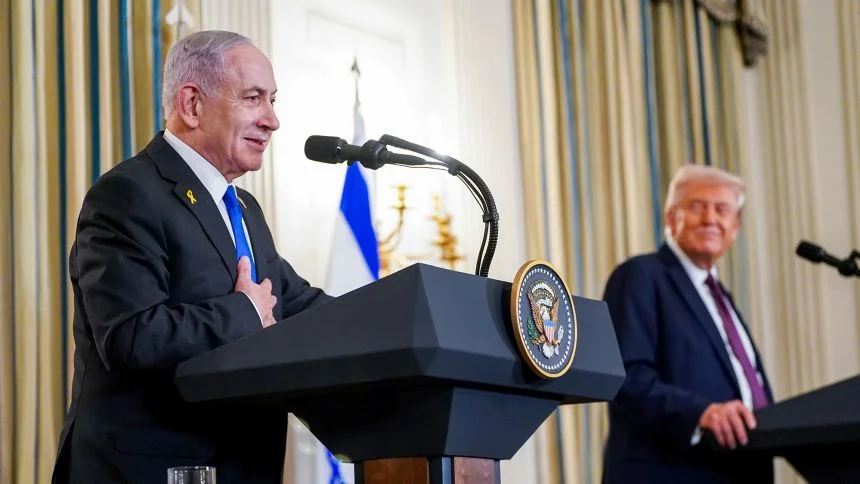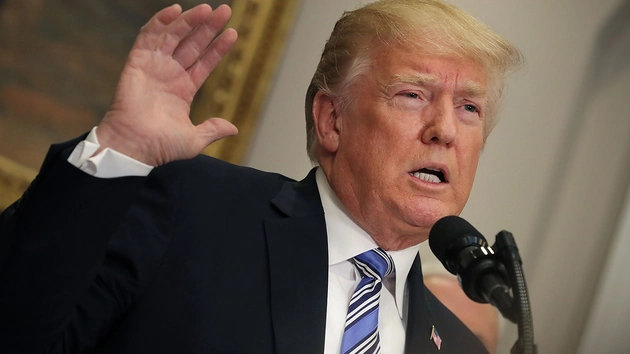Trump’s bold moves secured Israeli hostages and reshaped Netanyahu’s political fate. Discover how US pressure altered Israel’s strategy.
Table of Contents
Trump Cornered Netanyahu — But May Have Saved Him Politically

Introduction
In Tel Aviv’s Hostages Square, banners declaring “We love Trump” signal the unusual power of the former US president. With 48 hostages set to return under a historic ceasefire, Donald Trump’s influence on Israeli politics and security is undeniable. While Netanyahu appeared cornered, Trump may have simultaneously granted him political relief ahead of Israel’s upcoming elections.
The Accusations Against Netanyahu
For months, Netanyahu faced criticism from hostage families and opposition leaders. Critics argued that he prolonged the Gaza conflict to appease his far-right coalition, compromising humanitarian concerns for political survival.
- Yair Lapid, opposition leader, charged in December 2024: “Netanyahu seems reluctant to risk his political standing to secure the return of all the hostages.”
The tension highlighted the need for external pressure to break a stalemate.

Trump’s Return and Strategic Influence
Trump’s return to the political stage in early 2025 changed the landscape:
- Netanyahu praised Trump as Israel’s best friend in the Oval Office.
- Trump exerted pressure on Israel to accept key deals, including:
- The January deal bringing home 30 living hostages and eight deceased.
- Halting Israel’s imminent airstrike against Iran in June.
- Securing Netanyahu’s apology to Qatar over failed operations in Doha.
The 20-Point Peace Plan
Trump’s ambitious plan included:
- Immediate release of all 48 remaining hostages.
- Conditional ceasefire allowing the IDF to retain partial control in Gaza.
- Engagement of envoys Jared Kushner and Steve Witkoff to broker negotiations.
This plan gave Netanyahu political breathing room while framing the ceasefire as a strategic victory.
Netanyahu’s Political Calculations
Despite US pressure, Netanyahu attempted to control the narrative:
- Framed the ceasefire as a strategic achievement.
- Highlighted partial retention of IDF control over Gaza.
- Preserved ambiguity around Hamas disarmament, maintaining the option for renewed military action.
This calculated approach ensures coalition stability, even amid far-right dissent.

Election Implications
Netanyahu’s decision is tied closely to Israel’s political calendar:
- Israel’s elections are scheduled for October 2026 but may be held sooner.
- Ending the war and returning hostages reduces political liability.
- Trump’s popularity in Israel provides Netanyahu a boost for his re-election campaign.
The Strategic Impact of Trump’s Pressure
Trump’s influence reshaped the Middle East narrative:
- Israel-Hamas negotiations now follow a phased ceasefire.
- Netanyahu can claim political credit while managing hardline coalition expectations.
- Public approval for the deal is high, with polls suggesting 60–70% support among Israelis.
Regional Diplomacy
Trump’s involvement signals US commitment to Israel and regional normalization efforts, including coordination with Gulf states.
FAQs
Q1: What was Trump’s role in Israel’s hostage release?
A1: Trump pressured Netanyahu to accept a ceasefire, directly influencing the release of all 48 hostages through strategic negotiations and diplomatic leverage.
Q2: How did Netanyahu benefit politically from Trump’s intervention?
A2: By allowing Trump to lead the narrative, Netanyahu regained public support, safeguarded his coalition, and positioned himself favorably for upcoming elections.
Q3: What does the ceasefire mean for Gaza?
A3: The phased agreement leaves Hamas operational but ensures IDF maintains control over parts of Gaza, with future disarmament contingent on compliance.
Q4: Will the war resume in Israel or Gaza?
A4: Netanyahu preserved the right to resume military action if Hamas fails to disarm, keeping strategic flexibility intact.
Q5: How does Trump’s involvement affect US-Israel relations?
A5: It reinforces US influence in Middle East peace processes, demonstrating the impact of high-profile personal diplomacy.
Conclusion
Trump’s intervention reshaped a two-year conflict, securing the hostages’ release while preserving Netanyahu’s political future. By making Trump the “hero” of the deal, Netanyahu converts a cornered position into potential electoral advantage.
The ultimate test will be whether Israeli voters remember past failures or embrace the narrative of redemption.

